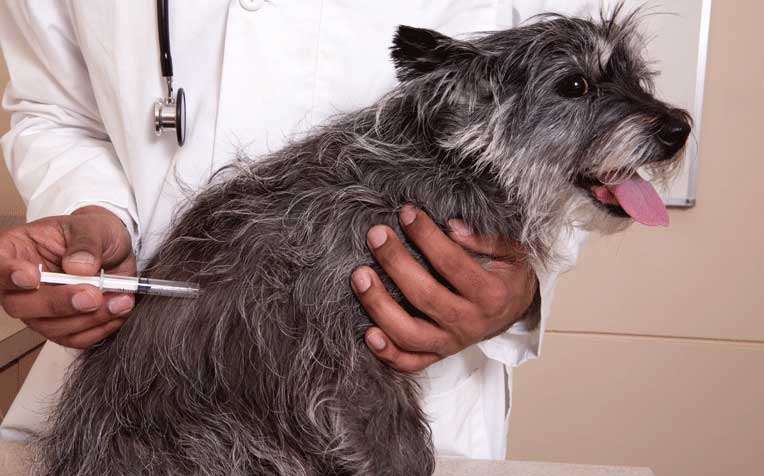
Rabies is transmitted from the bite of an infected animal.
Take precautions against rabies if you're travelling overseas.
Cases of rabies may be unheard of in Singapore, but you may want to take precautions if you are travelling overseas. Left untreated, this viral infection of the nervous system is nearly always fatal.
Annually, there are about 50,000 deaths from rabies in Asia and Africa. In a majority of these cases, infection is transmitted by dog bites and scratches. Besides dog bites, rabies can also be spread by infected bats, raccoons, skunks and foxes.
“An animal infected with rabies carries the virus in its saliva. When it bites, it can transmit the infection to a human,” explains Dr Limin Wijaya, Senior Consultant, Department of Infectious Diseases, Singapore General Hospital (SGH), a member of the SingHealth group.“The virus can also spread if you come into contact with the animal’s saliva through broken skin like cuts and scratches.”
One of the most recognisable signs of a rabies infection is a tingling or twitching sensation around the bite area. This is often accompanied by a fever, headache, muscle aches, loss of appetite, nausea and fatigue.
But you should never wait for these symptoms to develop. “Unfortunately, it is too late when one gets symptoms of rabies since there is no specific treatment,” says Dr Wijaya.
Other serious signs and symptoms, like muscle spasms, seizures, and intense drooling, may also appear. In an advanced stage, the infection can spread to other parts of the nervous system, including the brain. Once it has progressed to this stage, rabies is nearly always fatal.
Going overseas? Visit a travel clinic first
The good news is that rabies is a vaccine-preventable disease.
“Before heading overseas, especially when leaving for countries like India, China, Vietnam, Thailand, you may wish to consider getting a rabies vaccine,” advises Dr Wijaya. “This is especially crucial if your travel plans include visiting rural areas that might expose you to wildlife.”
At the travel clinic, your doctor will be able to advise you on the type and dose of the travel vaccines you will need, depending on your planned activities and length of stay.
Such pre-exposure vaccination typically includes three jabs, which will take approximately a month to complete.
Dr Wijaya adds: “While overseas, also stay wary of and avoid direct contact with wild or stray animals.”
If you’ve been bitten…
All animal bites and scratches should be taken seriously, especially dog bites. Even a lick to an open wound may lead to a rabies infection.
If you’ve been bitten overseas, let your guide know immediately so he can call for emergency help.
Meanwhile, you should thoroughly clean the wound with soap and water for a minimum of 15 minutes.
At the hospital, the doctor will give you a series of post-exposure vaccines to mitigate your risk of getting the disease. Dr Wijaya says: “You may also receive the human rabies immunoglobulin (HRIG). This will provide immediate antibodies until the body can respond to the vaccines by actively producing antibodies of its own.”
Through strict quarantine laws and stringent checks on dogs that have bitten, Singapore has been rabies-free for years. If the animal bite occurred in Singapore, please see your doctor.
Next, you will need to contact the animal control authorities and provide them with as much information as you can about the animal. The animal needs to be captured and assessed for rabies.
“With early treatment, the person’s life can be saved,” says Dr Wijaya. “But vaccination is still the best prevention against rabies.”
The SGH Travel Clinic is run by specialists from the Department of Infectious Diseases. It is a designated Yellow Fever Centre. The team of doctors and nurses will offer comprehensive travel advice and country-specific recommendations prior to your trip.
Ref: S13
Contributed by














 Get it on Google Play
Get it on Google Play